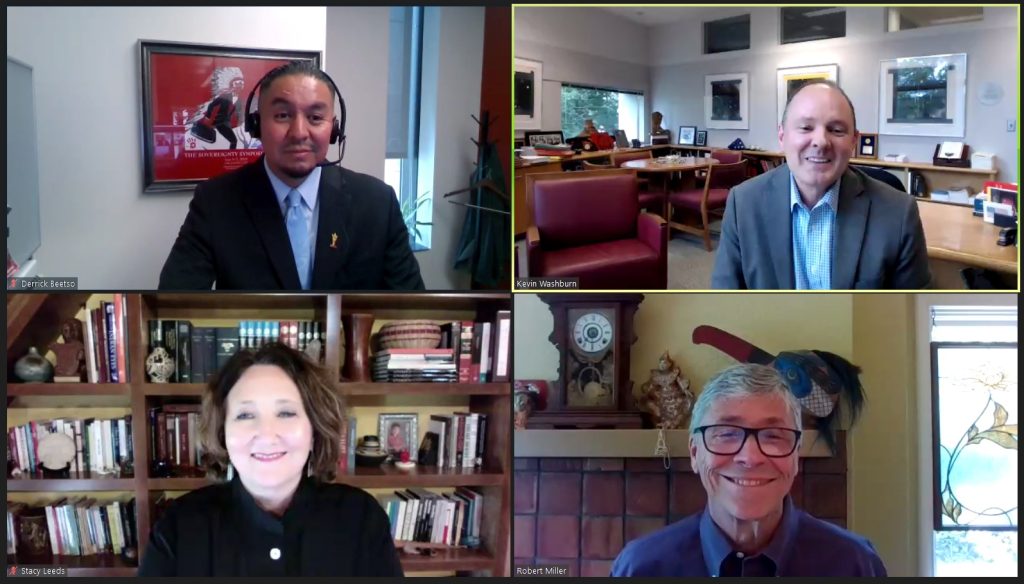
On July 7, ASU Law’s Indian Legal Program and Indian Gaming and Tribal Self-Governance programs hosted a virtual event – Oklahoma v. Castro-Huerta: Rebalancing Federal-State-Tribal Power.
Oklahoma v. Castro-Huerta is the most recent federal Indian law case decided by the U.S. Supreme Court and held that states share concurrent jurisdiction with the federal government in prosecuting crimes committed by non-Indians against Indian victims in Indian country. The majority decision, authored by Justice Brett Kavanaugh, departs significantly from earlier principles and precedent in this area and the panel discussed their thoughts on what this decision means on the ground for Indian tribes.
The event was moderated by Derrick Beetso (’10), Indian Gaming and Tribal Self-Governance Director, and included a fantastic lineup of Native leaders in academia: Kevin Washburn, Dean of Iowa Law School; Professor Stacy Leeds, ASU’s Foundation Professor of Law and Leadership; and Professor Robert Miller, ASU’s Willard H. Pedrick Distinguished Research Scholar and ASU Faculty Director of the Rosette LLP American Indian Economic Development Program.
The ILP and the Indian Gaming and Tribal Self-Governance programs thank each of our panelists for their time and for sharing their views on this case, and we thank all those who tuned in to listen to this discussion. If you missed the webinar, you may watch the recording.
On this topic, our expert faculty contributed to the national conversation happening in the media.
“Wednesday’s decision removes the jurisdictional boundaries of tribal sovereignty that have kept state and local police from entering tribal lands in some cases,” said Leeds to NBC News. Leeds’ legal expertise was also featured in KOSU, Reuters,Bloomberg Law and U.S. News & World Report.
“It will have an impact in Indian Country, so only the future will tell us if it’s good or not,” said Miller in an Associated Press news article. Miller also spoke to the Arizona Republic, saying: “Supreme Court rulings could weaken tribal jurisdiction and sovereignty.”
“Through this opinion, Kavanaugh rallied his cavalry of five to perform the modern version of slashing and burning peaceful Native communities and their resources and provisions to the ground,” Beetso wrote in his Indianz.com op-ed, “SCOTUS’ Decision in Oklahoma v. Castro-Huerta Departs Wildly from U.S. Constitution.”
